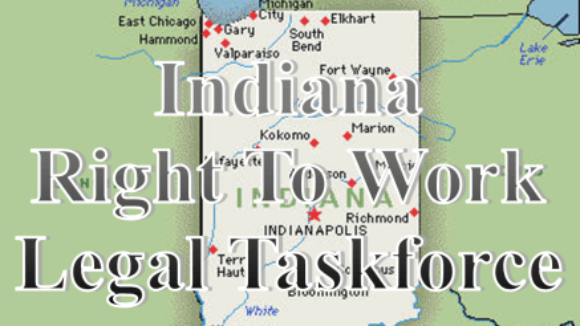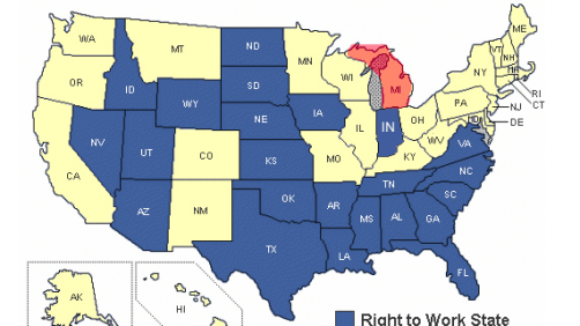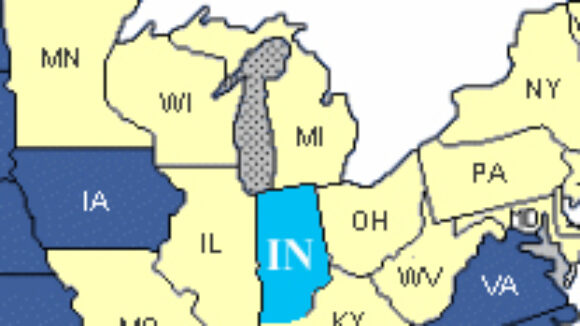Workers Fight Back Against Big Labor's Attempt to Nullify Right To Work in Indiana
National Right To Work Foundation Attorneys' are prepared for Big Labor Bosses and their legal shenanigans. Hoosiers David Bercot, a certified wastewater operator for ITR Concession Company which services Indiana toll road rest stops in the Fort Wayne-area; Joel Tibbetts, a Minteq International assistant manager in Valparaiso; Douglas Richards, an employee with Goshen-based Cequent Towing Products; and Larry Getts, a Dana Holding Corporation tube press technician in Albion are standing up for their Right To Work. From the Foundations release: Workers File Brief Opposing Union Boss Challenge to Indiana Right to Work Law National Right to Work Legal Defense Foundation staff attorneys provide free legal aid to workers defending law that ends union boss forced dues powers Hammond, IN (March 2, 2012) – In response to union bosses’ federal lawsuit against Indiana’s popular Right to Work law, a group of Indiana workers from across the state are filing an amicus brief in support of their newly-enacted Right to Work freedoms. With free legal assistance from the National Right to Work Foundation, the four workers – David Bercot, a certified wastewater operator for ITR Concession Company which services Indiana toll road rest stops in the Fort Wayne-area; Joel Tibbetts, a Minteq International assistant manager in Valparaiso; Douglas Richards, an employee with Goshen-based Cequent Towing Products; and Larry Getts, a Dana Holding Corporation tube press technician in Albion – all joined in the brief defending the law. Union officials publicly floated the idea of challenging Indiana’s Right to Work law before it was enacted. International Union of Operating Engineers (IUOE) Local 150 headquartered in suburban Chicago, Illinois filed a federal lawsuit late last month challenging the law and requesting an injunction against its implementation. Both Bercot’s and Tibbetts’s workplaces are unionized by the IUOE Local 150 union hierarchy. Both workers have refrained from union membership but are still forced to accept IUOE Local 150 union officials’ so-called “representation” and were required to pay dues to the union as a condition of employment before Indiana’s Right to Work law was enacted.




